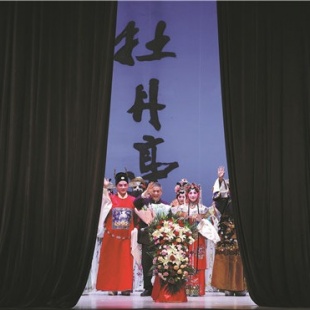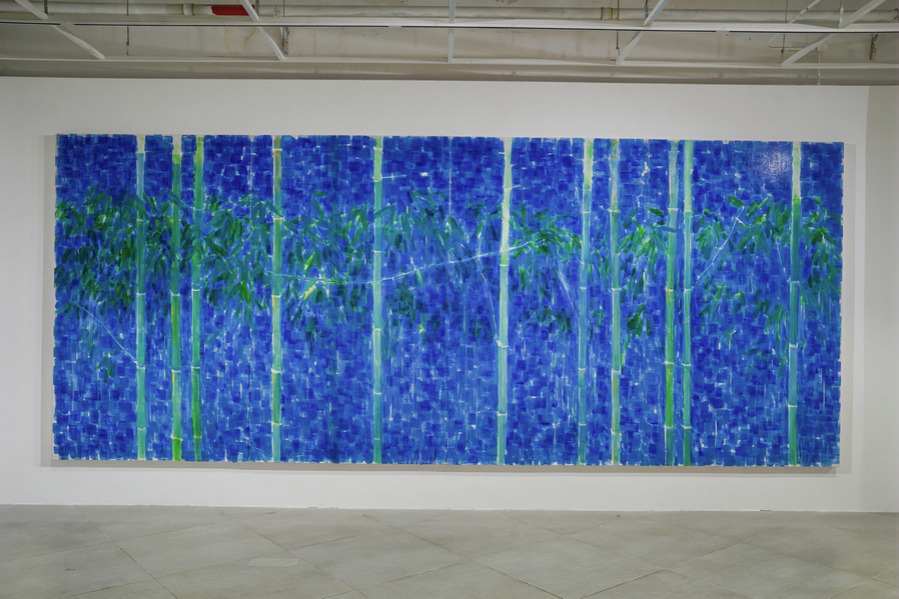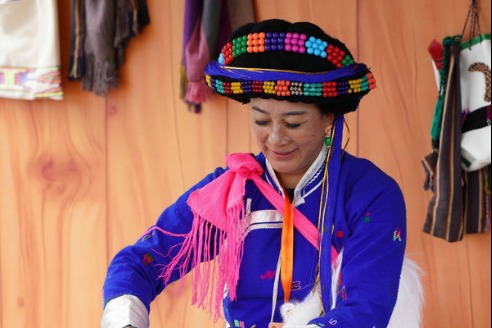Kunqu Opera is a hard act to follow


Art form steeped in tradition and culture enjoys a growing appeal, Chen Nan reports.
In Peking University Hall on Sept 13, an air of reflective nostalgia and vibrant enthusiasm enveloped a lecture by Pai Hsien-yung, a distinguished Chinese-American writer, playwright and director.
Pai, 87, a pivotal figure in modern Chinese literature and theater, took the stage to celebrate the 20th anniversary of the youth edition of the Kunqu Opera, The Peony Pavilion, which he produced and adapted. This adaptation of the Ming Dynasty (1368-1644) classic, originally penned by Tang Xianzu, has been instrumental in bridging the gap between Kunqu Opera and contemporary youth culture. The lecture not only commemorated two decades of artistic endeavor but also highlighted the enduring relevance of this timeless tale.
Pai's lecture also opened the latest performances of the youth edition of The Peony Pavilion, which was staged for three days at Peking University from Sept 14 to 16. About 6,000 tickets were sold.
"Time flies. It's been 20 years since we premiered the youth edition of The Peony Pavilion. I am back here today, sharing this production with young people, just like what we did two decades ago," Pai says. "I am a writer and I never expected that my life would be associated with Kunqu Opera closely for such a long time. I consider myself a volunteer in protecting and promoting the ancient art form, which is so sophisticated and beautiful that it would be a great regret if we didn't keep it alive and let it be appreciated by a wider audience."
One of the oldest traditional opera forms still performed in China, Kunqu Opera was born in the region of Kunshan in today's Suzhou, Jiangsu province. It has distinguished itself by the virtuosity of its rhythmic patterns and exerted a dominant influence on other recent forms of opera in China, such as Peking Opera, which is over 200 years old. It is hence known as the mother of all Chinese operas.
Combining songs performed in the Suzhou dialect, graceful body movements, martial arts and dance, Kunqu Opera uses a great variety of gestures to express specific emotions.





































